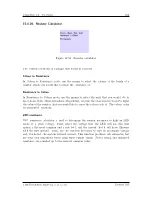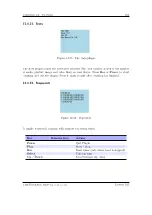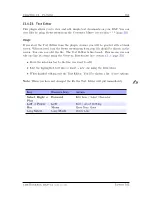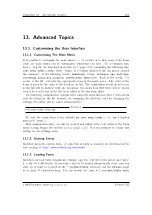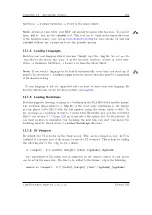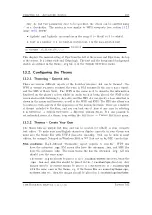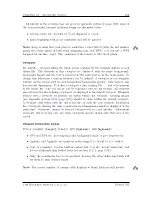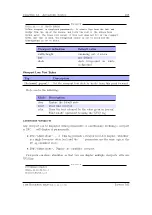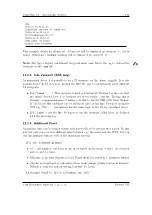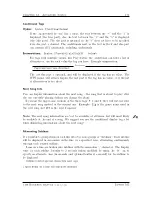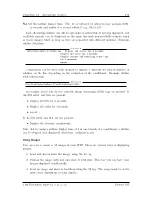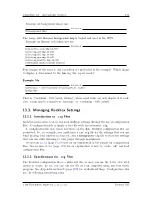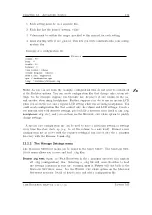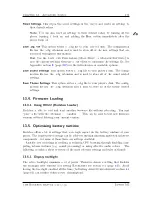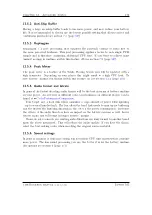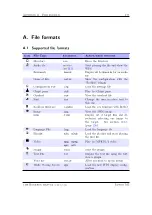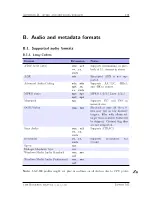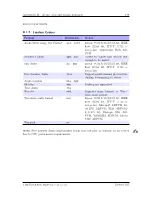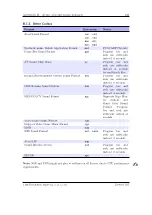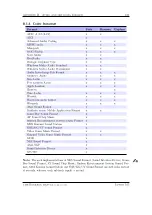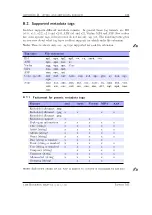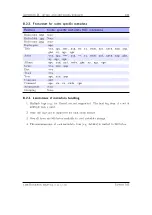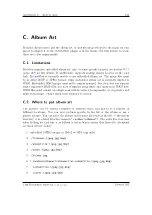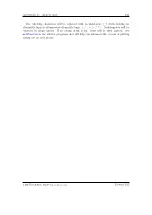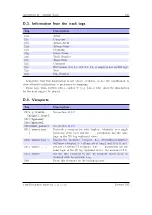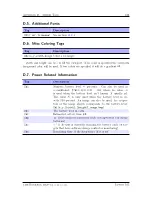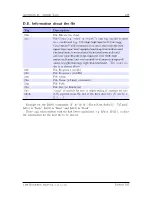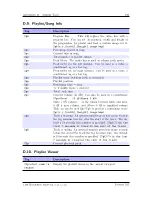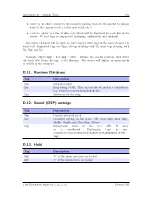
Chapter 13. Advanced Topics
176
13.5.2. Anti-Skip Buffer
Having a large anti-skip buffer tends to use more power, and may reduce your battery
life. It is recommended to always use the lowest possible setting that allows correct and
continuous playback (see section
(page
13.5.3. Replaygain
Replaygain is a post processing that equalises the playback volume of audio files to
the same perceived loudness. This post processing applies a factor to each single PCM
sample and is therefore consuming additional CPU time. If you want to achieve some
(minor) savings in runtime, switch this feature off (see section
(page
13.5.4. Peak Meter
The peak meter is a feature of the While Playing Screen and will be updated with a
high framerate. Depending on your player this might result in a high CPU load. To
save battery runtime you should switch this feature off (see section
(page
13.5.5. Audio format and bitrate
In general the fastest decoding audio format will be the best in terms of battery runtime
on your player. An overview of different codec’s performance on different players can be
found at
Your target uses a hard disk which consumes a large amount of power while spinning
– up to several hundred mA. The less often the hard disk needs to spin up for buffering
and the shorter the buffering duration is, the lower is the power consumption. Therefore
the bitrate of the audio files does have an impact on the battery runtime as well. Lower
bitrate audio files will result in longer battery runtime.
Please do not re-encode any existing audio files from one lossy format to another based
upon the above mentioned. This will reduce the audio quality. If you have the choice,
select the best suiting codec when encoding the original source material.
13.5.6. Sound settings
In general all kinds of sound processing will need more CPU time and therefore consume
more power. The less sound processing you use, the better it is for the battery runtime
(for options see section
(page
The Rockbox manual
(version 3.14)
Iaudio M5

